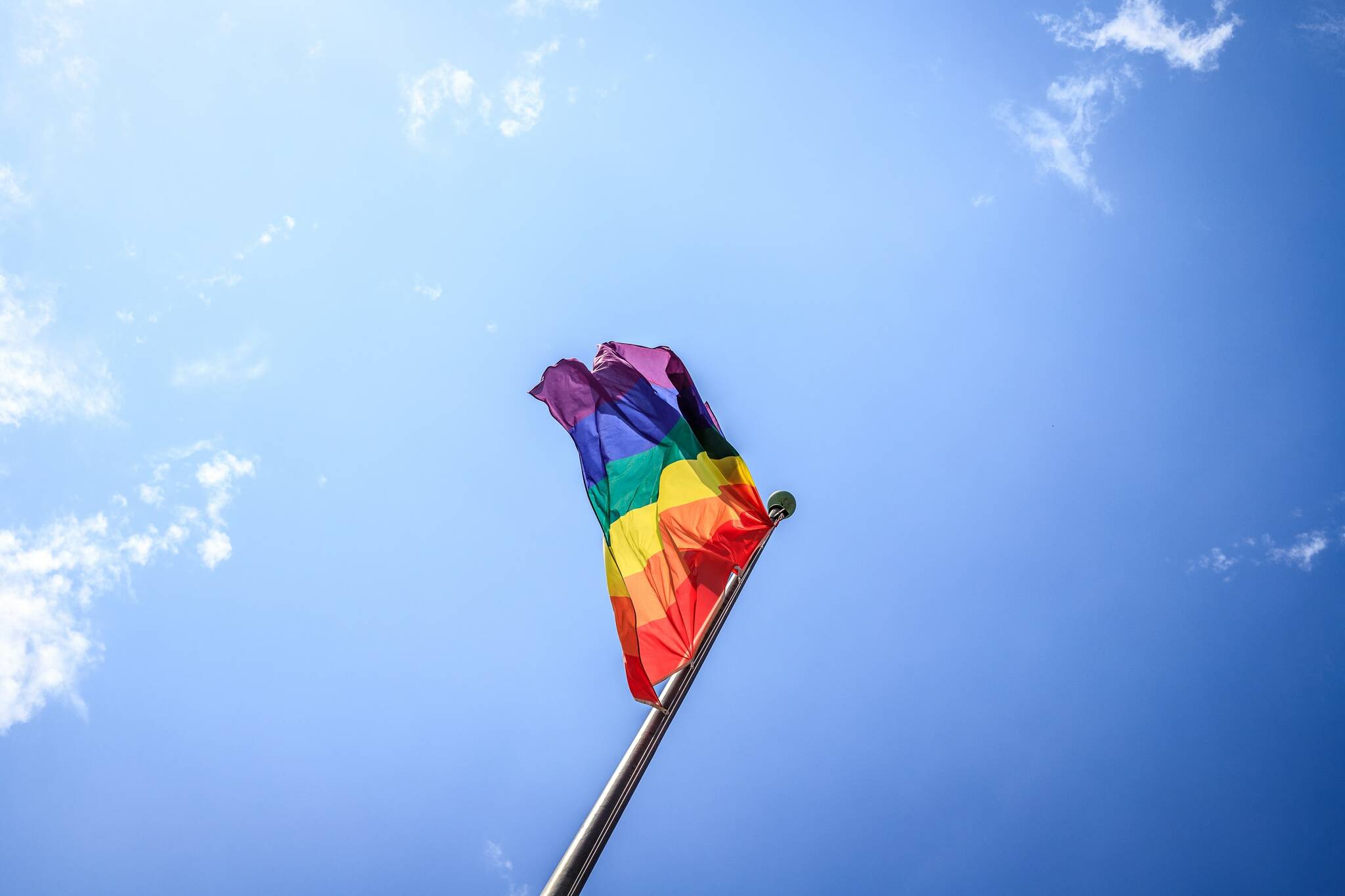By Maureen Longworth
In the ’90s, I asked George Rogers, one of the writers of the Alaska state constitution, what happened here in Juneau in the ’60s when gay men were sent away.
Everyone knew it was the police and their hired vigilantes who turned up on doorsteps without warning, often in the middle of the night. They escorted suspected homosexuals and their families to the ferry dock with a “blue ticket” for a one-way ferry and threatened never to return.
They purged our capital city of its LGBTQ+ community one by one. The banished individuals left their jobs, friends, careers, homes, cars and possessions and just disappeared overnight.
Back then, George said, there were no legal protections for LGBTQ+ individuals. All he could do was warn gay men to leave before they were caught and “blue ticketed.”
“Everyone knew it was going on, but there was nothing we could do,” Rogers said. “So, we stood silently and let it happen.”
When my spouse and I moved to Juneau nearly 30 years ago, I began collecting personal stories about gay men who disappeared back in the 1960s.
After more than 50 interviews with people connected to Juneau during the 1960s, the stories became the fabric for “Blue Ticket,” a historical fiction, romantic political thriller. These stories include a man who was interrogated with a lie detector because his roommate — a member of the Coast Guard — was suspected to be in relationships with men, and a beloved teacher who disappeared after his contract wasn’t renewed.
These breathtaking stories convey many tragic situations for LGBTQ+ Alaskans and the pain many endured. Sadly, the banishment of LGBTQ+ people is a universal history not unique to Juneau.
Most history books don’t include details on LGBTQ+ discrimination. It is not present in our national civil rights museums and has gone unmentioned for too long. And due to a lack of these stories, inequalities toward LGBTQ+ people continue.
Many don’t realize that LGBTQ+ people still don’t have federal protection for equal rights under the law, and discrimination happens regardless of where we live. Over the last five years, at least 40 LGBTQ+ military families were denied PFDs (Alaska state Permanent Fund Dividends paid to Alaskans annually).
Even though LGBTQ+ marriage is recognized legally in Alaska, the department issuing the dividends conjured up refusal language based on outdated regulations. Other states get away with their own ways of discriminating against LGBTQ+ people with no federal protections providing uniform treatment in medical care, emergency housing and shelter.
In addition, many older Alaskans are forced to reside outside the state due to medical conditions or special needs that come with aging. All LGBTQ+ people, including myself, have the added worry of not knowing where we’ll be welcome or where we can receive unbiased medical or personal care.
And victims of discrimination have no recourse to take on powerful corporations and employers, landowners and health care systems when there is no law to back them up.
George called the lack of LGBTQ+ protections in the 1960s shameful. I wonder what he would say if he were alive today and knew LGBTQ+ people in Alaska still did not have equal protections under the law.
For years, legislation for LGBTQ+ equal rights has sat at our state level, never making it out of committee or to the floor for a vote. Like every state that lacks equality, we need federal protection. Our representatives have the chance to make that happen.
Our representatives must support nondiscrimination protections at the federal level for LGBTQ+ Americans. These protections are long overdue and are critical for the health and well-being of our population.
• Maureen “Mo” Longworth, she/her, is a writer in all genres. Longworth began writing scripts when she was 8 years old, growing up in Los Angeles. While attending medical school at the University of California in San Francisco, she wrote, produced and directed “Turning Around,” a film about sexism in medicine, and later put it to film and video shown worldwide. Longworth became an international speaker and consultant on sexism. Now a retired physician living in Alaska, Longworth continues to write and work for her lifelong passions of justice and equality. Her play “Blue Ticket” is available for production through www.BlueTicketAlaska.com.

